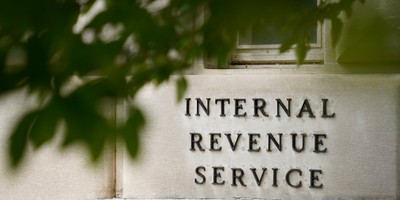WASHINGTON -- A couple of months back in our nation's capital Senator Rand Paul spoke at The American Spectator's annual Robert L. Bartley dinner and wowed the crowd. However, at the end of his rousing speech, he assumed a more somber tone as he spoke about the plight of America's poor, particularly the poor who commit petty crime. He expanded his remarks to include those who commit petty crime in general and find themselves committed to the unwelcoming doors of the American prison system from which they emerge often only infrequently. Our American prison system turns out to be a place with little to offer, save for an advanced degree in criminality. If one were intent on entering a life of crime, one might begin in an American prison.
Senator Paul's point was that something should be done about criminalizing petty crime and handing down onerous sentences when other forms of punishment are available. Stealing a loaf of bread or selling a small quantity of marijuana or some other controlled substance ought not to land a young person in jail, putting him on the road to more serious and more violent crimes. It ought not to condemn the young person to a life spent in and out of the criminal justice system when other options are available.
Today's incarceration rate costs American society hundreds of millions of dollars in lost income. It dooms the petty criminal to a life of increasingly serious crime. Finally, it costs the American government billions of dollars in prison upkeep that could be spent in other ways -- or not spent at all. The United States has less than 5 percent of the world's population, but it has 25 percent of the world's prisoners. According to the Charles Koch Institute, incarceration leads to "a 40 percent decrease in annual earnings, reduced job tenure, and higher unemployment."
The Spectator crowd, a patriotic band that is tough on crime, was subdued upon hearing Senator Paul. Many had not thought about the costs, the lost lives and the alternative ways of dealing with petty crime.
Recommended
To begin with, an individual committing a "victimless crime," say stealing from an ATM or defrauding another citizen or a corporation -- committing what are usually called white-collar crimes -- can be punished in other ways than public incarceration, starting with the convicted malefactor making restitution for his misdeed and paying a penalty. Why not have the criminal consigned to house arrest with a monitoring device while holding down a job that would allow him to pay restitution, a penalty, and taxes? He might learn law-abiding ways rather than further ways to break the law and to grow ever more violent.
The criminal justice system ought to criminalize only crime, not mistakes in judgment. A crime should be committed knowingly and willfully, not by negligence or ignorance. Yet today, picking flowers in a national park or gathering arrowheads in the wilderness can land the perpetrator in the calaboose. Criminal liability ought to be restricted to criminals.
There are other reforms that should be pursued. Senator Ted Stevens was convicted by prosecutors run amok. Among other things, they failed to disclose evidence that would have exonerated the now-deceased senator. Such prosecutorial abuse should end. So should the mandatory minimum sentencing that does not take into account mitigating circumstances. Again, what a wretch did was wrong, but when sending him to prison rather than to some other form of incarceration will quite possibly condemn him to a life of crime -- all at public expense -- there may be a better course to follow.
An eye-opening experience that prepared me for Senator Paul's remarks was Conrad Black's run-in with the law. Conrad was no petty criminal. Indeed he was worth half a billion dollars and owned the third-largest chain of newspapers in the English-speaking world. He was tried on 13 charges. He was acquitted of all the most serious.
When it became clear that to convict him the jury might have used a vague legal construction known as "honest services" fraud, Black appealed -- and, in the Supreme Court, won 9 to 0. Yet a lower court sent him back to prison on one charge. And there he sat in a federal penitentiary with criminals, some petty, some decidedly dangerous, but all at government expense.
Would it not have made more sense for the feds -- particularly after their own ghastly errors of law and judgment -- to fine him and let him go free? For that matter, would it not make sense for his neighbor in the calaboose, a first-offender for some nonviolent, possibly petty, crime to be sent home with a monitoring bracelet on his ankle, a stiff fine and a job, plus a chance to rehabilitate his life? These are the kind of questions that we might ask after listening to Rand Paul talk of reform.

























Join the conversation as a VIP Member